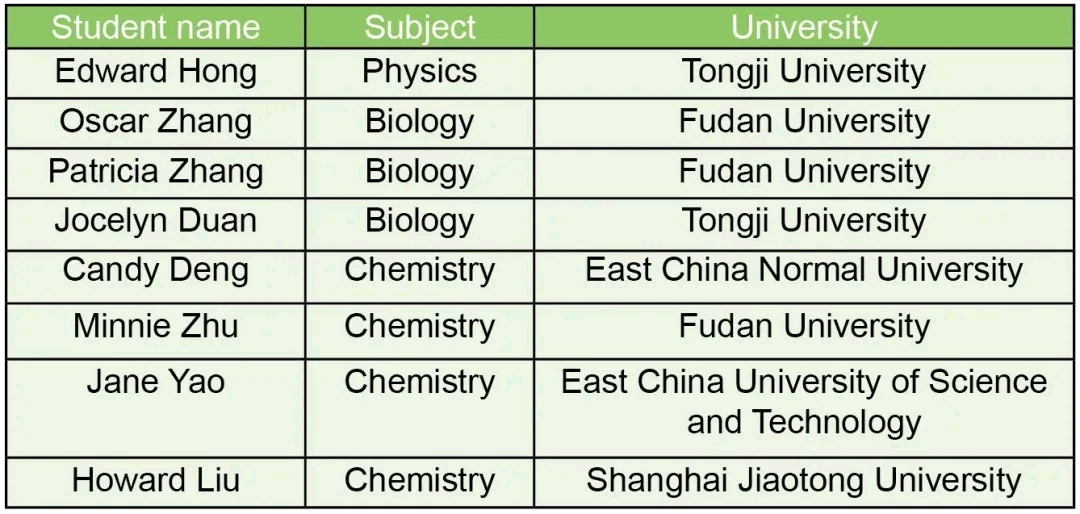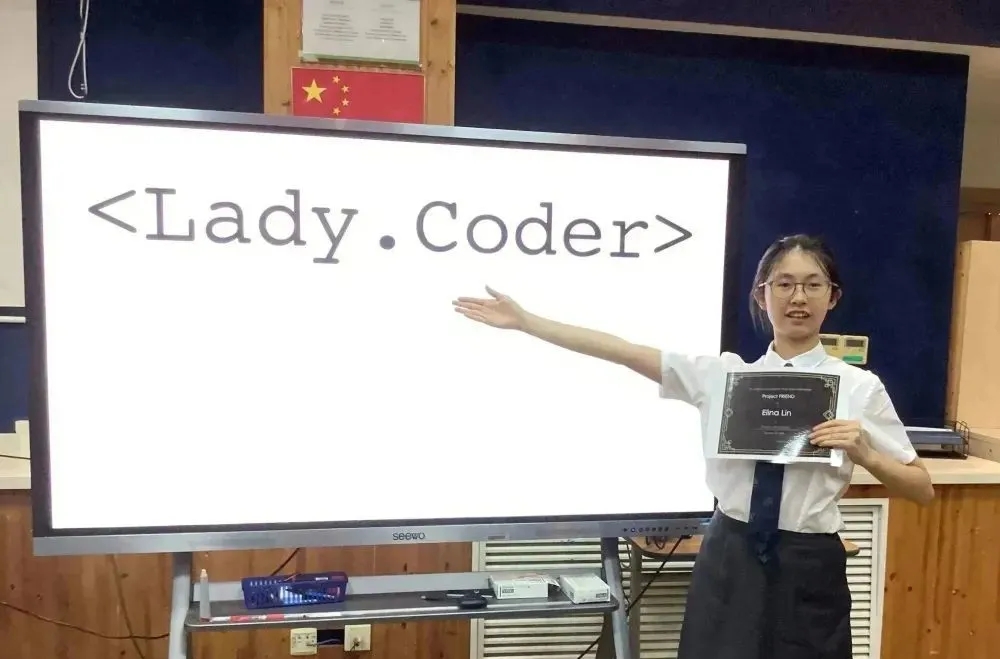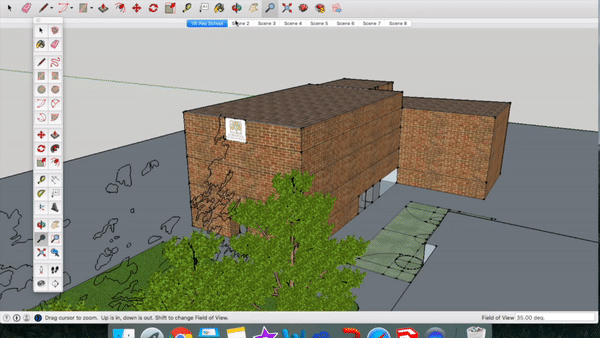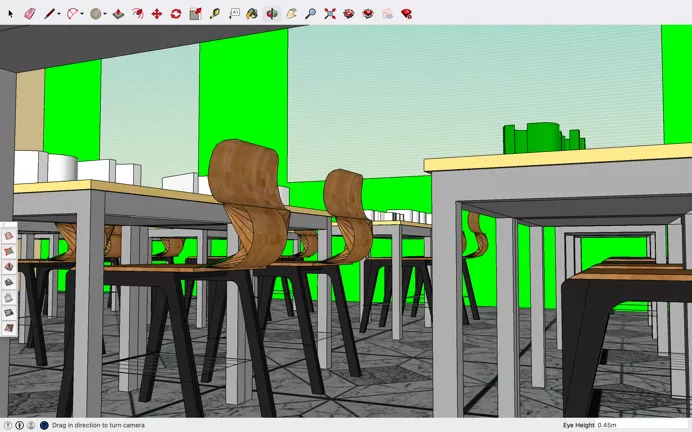Recently, eight Year 10 Pao School students were selected to participate in Shanghai’s 2023 Talent Programme, which gives exceptional students the chance to participate in science-related research under the guidance of mentors from China’s leading universities. The programme is jointly organised by the China Association for Science and Technology and the Ministry of Education, alongside the support of experts from Fudan University, Jiao Tong University, Tongji University, East China Normal University, and East China University of Science and Technology. In total, 192 outstanding students were chosen for the programme this year, with Pao School students participating in projects spanning various scientific fields.

Pao School firmly believes in the exploration of different pathways for science education by adopting the strengths of both Chinese and foreign teaching and bilingual science education. Further, the school also gives students the chance to interact with scientists, organises activities such as “Scientists on Campus, and has established various partnerships with scientific research institutes and universities. Through this, the school hopes to cultivate each student’s interest in science, build their passion and understanding, encourage them to take part in scientific research, build overall scientific literacy, and ultimately lay the foundation for the growth of scientific talents in the future.
—— David Xiong, Director of Chinese Academics
A ray of light in a scientific ocean

Last year, Elina (Y11), was selected for the 2022 Talent Programme. Since then, she has worked on two computer science research projects under the supervision of Professor Wang Xiaoyang (Fudan University). Elina’s research interests focused on artificial intelligence, including enhancing text-to-speech to support those with learning disabilities and strengthening the filtering of inappropriate images on the internet.
Project 1: RhySpeech: A Deployable Rhythmic Text-to-Speech Based on Feed-Forward Transformer for Reading Disabilities.
RhySpeech is a text-to-speech acoustic model that can model rhythmic patterns in human speech. This research can be used to help individuals with reading disabilities to better use text-to-speech systems to learn independently, as studies have shown that listening to speech can improve the linguistic abilities of those with disabilities.
Project 2: DeepWise Cyber Teen Guardian: Protecting Internet Environment via a Novel Automatic Adversarial Samples Detection System Based on Revised Neural Network.
DeepWise is a web browser add-on for the filtering of inappropriate images. It aims to protect children from harmful content online. DeepWise analyses the characteristics of the intermediate values an image recognition neural network produces and filters out inappropriate images more reliably through improving how images are identified by image recognition networks.
Elina describes the Talent Programme as a ray of light in the vast ocean of science. The programme has inspired her to think more deeply about scientific and technological issues, alongside giving her the skills needed to develop appropriate solutions. During her projects, she realised that scientific research doesn’t have to be about solving a grand problem but can also focus on finding the best solution for one part of a problem. To put this concept to the test, Elina decided to venture outside of her comfort zone by trying coding for the first time, alongside learning how to identify solutions she could work on. In addition, she learned how to improve her skills of inquiry and communication – particularly as she also needed to write her own papers, prepare speeches and presentations, and refine her language to share her research with others.
From CCAs to scientific research
Science and technology education is an indispensible part of the development of well-rounded students. It allows us to cultivate students' investigative thinking, consolidate their foundational scientific knowledge, and develop skills for interdisciplinary research. One of our goals is the standardisation of the science and technology curriculum, including the integration of science and technological content in interdisciplinary contexts both in and out of the classroom - to ultimately help improve students’ overall ability and help them to become their best selves.
—— Susie Li
Head of Zhongkao Science / High School Science Teacher
Elina, who joined Pao School in Year 1, feels that Pao School’s diverse and inclusive culture is her favourite part of the school. At Pao School, teachers are always encouraging and give full support to students when they want to try new ideas. For example, when Elina was in Year 5, she proposed to Timothy Gallagher, her English and EU teacher, the idea of establishing a technology creation club. With Mr. Gallagher’s support, Challengers' Club was born. As part of the club, the students learned basic computer language and logic, made 3D models and 360-degree panoramas of the Primary School’s teaching buildings, and provided software support for the Environmental Fair. These activities allowed her and her classmates an opportunity not only to practice their logical thinking and computer skills but also to explore new ideas.

In Year 5 Elina made a 360-degree panorama of the Primary School building
After graduating from Primary School, Elina – who was among the first batch of students who entered the Middle School campus at Hongqiao – brought the Challengers' Club with her to the new campus. Alongside this, she also organised and participated in the Creative Club, which was a CCA focusing on architectural design. As part of the CCA, Elina taught her classmates how to use 3D modelling to design digital replicas of the campus. After entering Year 7, Elina's love for computers blossomed further and she turned her eye towards robotics. As vice-captain of the Robotics Varsity team, Elina and her classmates used the programming language Java to create a robot with the capability to move across a playing field, grab objects such as cubes and spheres, and that could right itself after falling.

Year 6 campus modelling work
After Year 9, as Elina developed a further understanding of cutting-edge technology development, she began to take her first steps in exploring this quickly developing area of computer science. Even prior to being invited into the Talent Programme, she was fascinated with the area to the extent that she completed a project within which she researched and designed a low-cost method of analysing the electrical signals of muscles – technology that can be applied to the development of affordable prosthetics for the disabled. Then, as a culmination of all her efforts and desire to continue learning more, Elina chose to study Advanced Level IB Computer Science in Year 11.
As an integral part of the Pao School curriculum, computer science plays a key role in students’ 12-year journey through the school. Starting in the Primary School, Pao School students learn foundational computer skills, alongside taking their first steps into more advanced topics like robotics and programming. At Middle School, students continue to build on this knowledge and explore it in more depth. Then at the High School, in IB Computer Science, students learn about programming, solving real life problems, and computational thinking. Alongside applications within computer science, these skills have wider applications across all areas of life – including the development of abstract and logical thinking for problem-solving.
I want to work in artificial intelligence research because it gives me a sense of accomplishment. In the future, I hope that my scientific research can contribute towards the real-life application of AI so that more people can benefit from technological advancement and make society a better place.
—— Elina, Y11
A diverse and vibrant life at Pao School
In addition to computer science, Pao School's rich campus life has broadened Elina's horizons in other areas, such as the arts. For example, with the encouragement of teacher Jessica Cohen, over the past three years Elina has explored writing poetry in English, which has become her favourite way to relieve stress and express her emotions. Alongside creating written works, Elina also enjoys music – having learned both the piano and viola since childhood, which grew further at Pao School. Since entering High School, Elina has tried her hand at electronic music composition and recently shared a piece named Redemption at the 2022 Winter Concert.
Elina’s electronic music piece - Redemption
Elina is also particularly active in leading activities outside of the classroom and has founded her own student club called Lady Coder. The club specialises in teaching female students programming from the very beginning, allowing those with no previous experience to gain confidence in computer science. Furthermore, Elina enjoys working to support others through participation in activities such as the peer mentor and prefect programmes. Through this, she is able to help younger students adapt to the campus and support teachers’ work in the dorms.
Pao School's whole-person education concept allows children to develop as all-rounders. Alongside teaching and learning, the school pays attention to each student’s emotional and mental well-being. No matter whether it is the plushies in the dorms, one-on-one support groups for incoming students, the social group for students facing difficulties, surprise house trips, or the hundred family banquet… Pao School really spares no effort in building a strong community and caring environment for the students. In the three years Elina has been on the High School campus, her fellow classmates have become like a family.
—— Elina’s mother